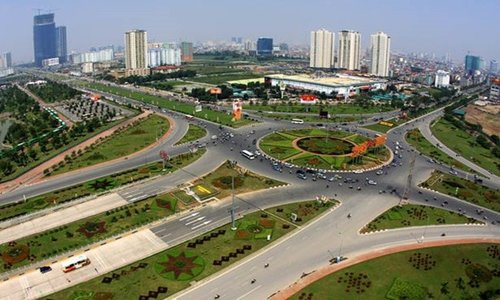Vietnam: Priority to upgrade infrastructure for digital economy
The business community also suggested to facilitate effort in implementing commitments of APEC’s economic members against protectionism, focusing on measures to promote trade, investment, such as to take part in the Trade in Services Agreement (TiSA), Environmental Goods Agreement (EGA), APEC’s Services Competitiveness Roadmap (ASCR). Enterprises also recommended on removing trade barriers, which may increase business cost and restricting investment and growth, through facilitating transparency, clarity and equal treatment. In order to achieve agreements in facilitating trade, investment and integration, APEC’s economic members should put up effort in overcoming short term benefits and geographical conflict, as well as differences on culture toward common goals and sustainable development for all parties involved.
In addition to the fight against protectionism, the issue of upgrading infrastructure for digital economy, removing division in digital technologies, developing digital trade and encouraging information transfer worldwide are solutions to facilitate integration, expanding trade and ensure the benefits of digital economy to be spread among all digital economies. With an aim of upgrading infrastructure for digital economy, APEC’s economic members need to create legal environment to remove unnecessary barriers and create favorable conditions for digital commerce development, including cooperation in international effort to transmit information efficiently and safe through region and law reform in each country.
Besides internet and digital technologies connection, connection among people will create favorable conditions for labor force movement in regions to facilitate growth, as APEC’s economic members are showing more concern with regard to labor shortages and incompatible skills of labors in the context of a fast changing world.
Enterprises also show interest and discuss on upgrading physical infrastructure (roads, ports, railways, national grid) and institutional connection (connecting international law to create conditions for regional integration), as conditions to facilitate integration and development.
Another issue is to improve competitiveness of micro and small and medium enterprises (MSMEs). MSMEs are considered the driving force for regional economy. As such, MSMEs contribute to 90% the number of enterprises and using 60% of labor forces. However, MSMEs only contributes to 35% of trade value. Nowadays, with the advances of technologies, especially in Information & Technology (IT) and media, MSMEs can directly participate in cross border trade with low cost through digital economy and e-commerce platform.
The prospect of Vietnamese farmers can directly sell their goods to customers in the US, Europe or any country in the world is not too far away, but on the condition of solving issues related to payment, logistics and delivery, more importantly, the issue of establishing credible and trustworthy e-commerce market, as well as network and information security should be established.


 Thailand
Thailand




